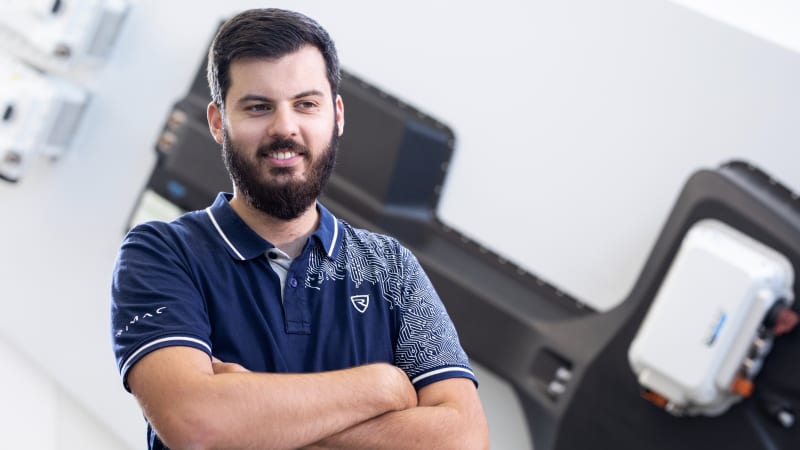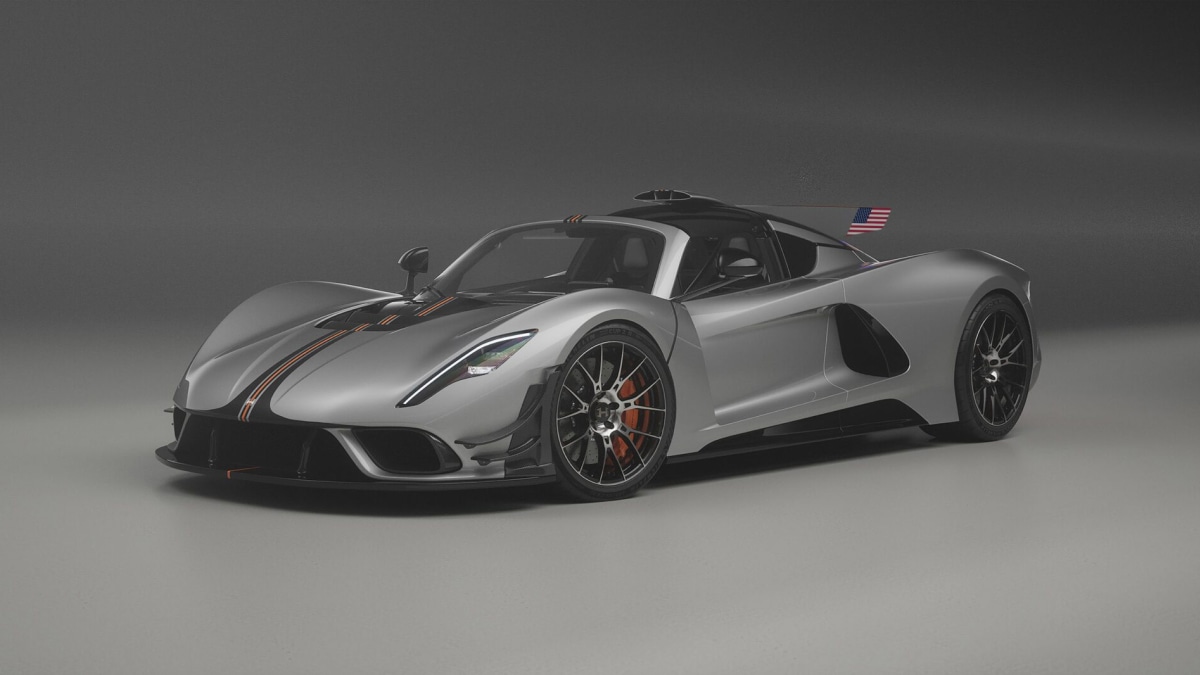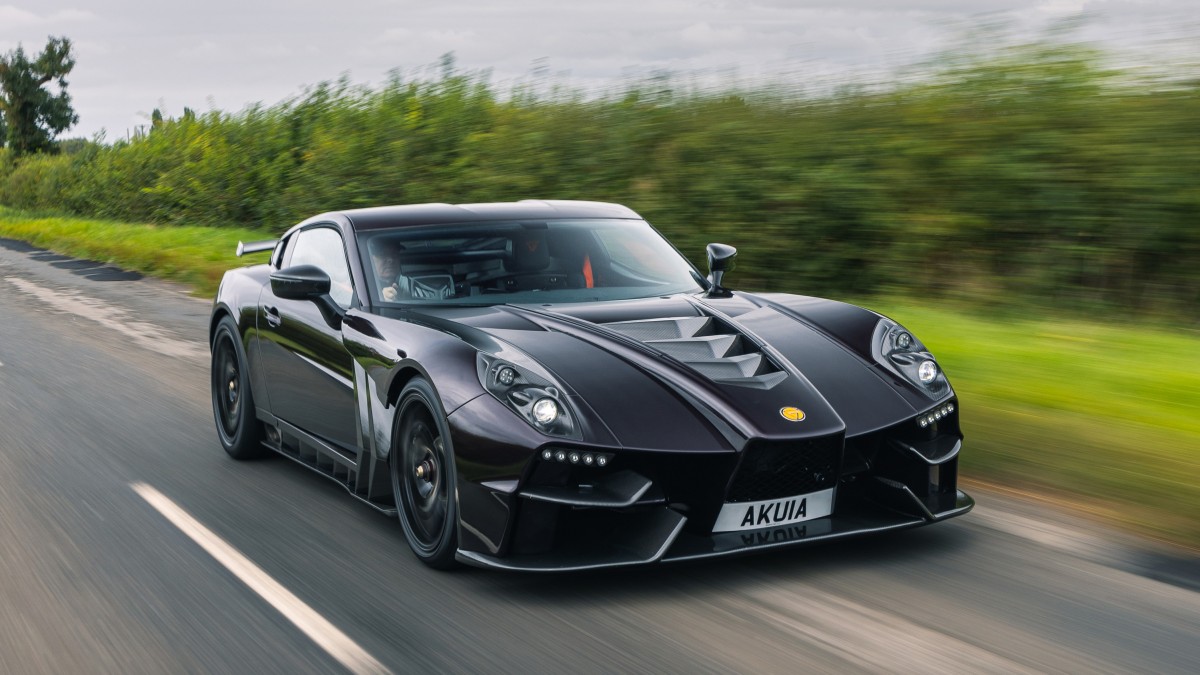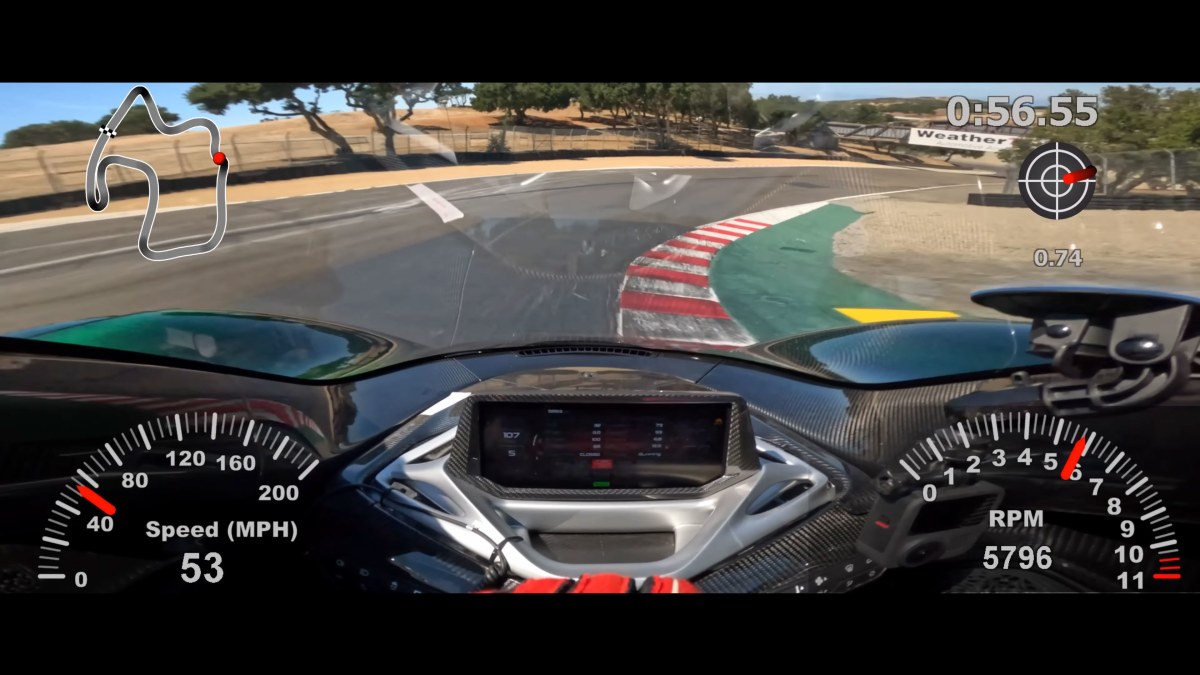Mate Rimac is used to being the underdog. At the Geneva auto show in 2009, the then-21-year-old Croat walked to the Koenigsegg booth looking for his idol, Christian von Koenigsegg. In those pre-YouTube-saturation years, Rimac didn’t know what the namesake of his favorite car brand looked like. And no one knew him. So he approached “the most serious-looking guy” at the stand and went on to befriend his idol, Rimac said in an interview on Aug. 13 in Carmel, Calif.
Twelve years on, Rimac, now 33, has more than leveled the playing field with his Swedish friend. On July 5 his Rimac Automobili — the tech and supercar company he founded in his garage — announced a joint venture with Porsche AG to take control of Bugatti. The 112-year-old French crown jewel in parent company Volkswagen AG’s crown, Bugatti sells cars like the 1,480-horsepower Chiron Pur Sport, which gets 8 mpg in city driving. The brand traditionally does not disclose specific sales results but is known to deliver roughly 80 vehicles globally each year. Rimac has characterized the acquisition as “removing some distractions” from VW.
According to the terms of the deal, Rimac holds a 55% stake in Bugatti-Rimac while Porsche owns the remaining 45%. Earlier this year, Porsche had also separately increased its stake in Rimac to 24%.
Rimac himself will take the helm of Bugatti-Rimac, while Porsche’s Oliver Blume and Lutz Meschke will join a supervisory board for the company. It’s all quite a change of view for a guy used to working behind the scenes.
“The stakes are getting bigger,” Rimac said. “But I am not somebody to play it safe. Never. Not even close. So if there is going to be some friction with our shareholders and more experienced people that come into the company, it’s going to be that.”
The arrangement marks the first time Volkswagen has ceded control over one of its brands to a company and a person so young. It also signals a subtle stratification of the company’s premium marques, dividing those aligned with Rimac, which includes Porsche and Bugatti, from those such as Audi and Bentley that are likely to continue using VW’s own electric components.
“We are already developing stuff that will be soon in high-volume Porsches,” Rimac says. “Not special projects, but the mainstream.” The company provides EV tech such as batteries for carmakers including Koenigsegg and Pininfarina.
At this point, Rimac admits that his 1,000-person, decade-old operation is far from an underdog. Porsche just paid the company $70 million, he says, and Rimac’s $2.4 million Nevera supercar recently turned in the quickest quarter-mile time ever for a production car. The Bugatti-Rimac venture will retain both Bugatti’s headquarters in Molsheim, France, and Rimac’s headquarters in Zagreb, Croatia.
“It feels really interesting when you think where we came from — this country has never had an automotive industry,” Rimac says of Croatia. “We had absolutely no idea what we were doing. And now our tech is in so many cars, and with Bugatti this whole thing is a huge responsibility.”
He is used to the pressure by now. Call it discipline à la automaker.
“I was told by our big OEM customers, if you screw up, the next day we send 30 trucks, they pick up everything, you are dead,” Rimac says. “If you screw up and you don’t deliver, everything stands still, and then you are dead. You are dead.”
Related Video:




